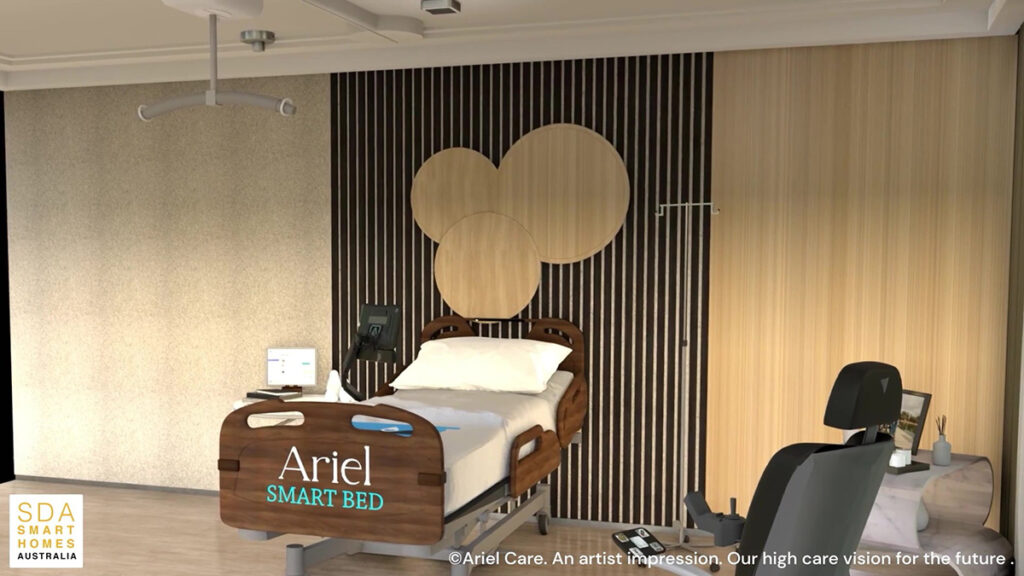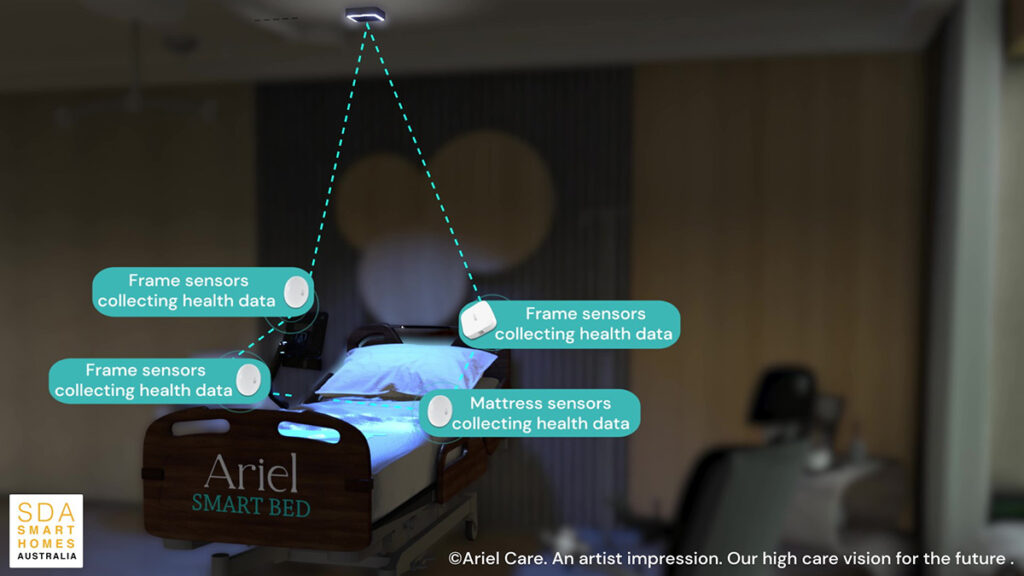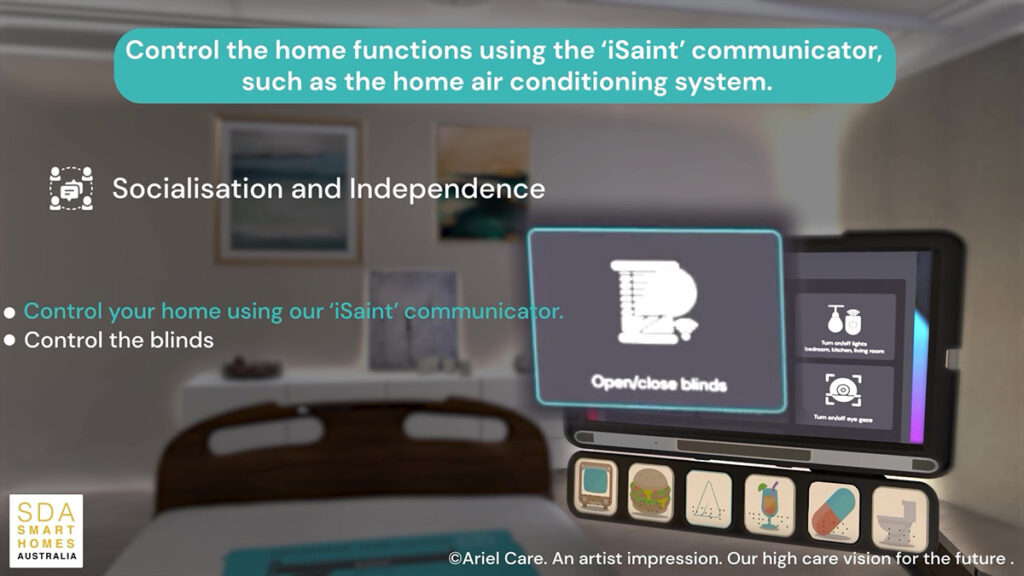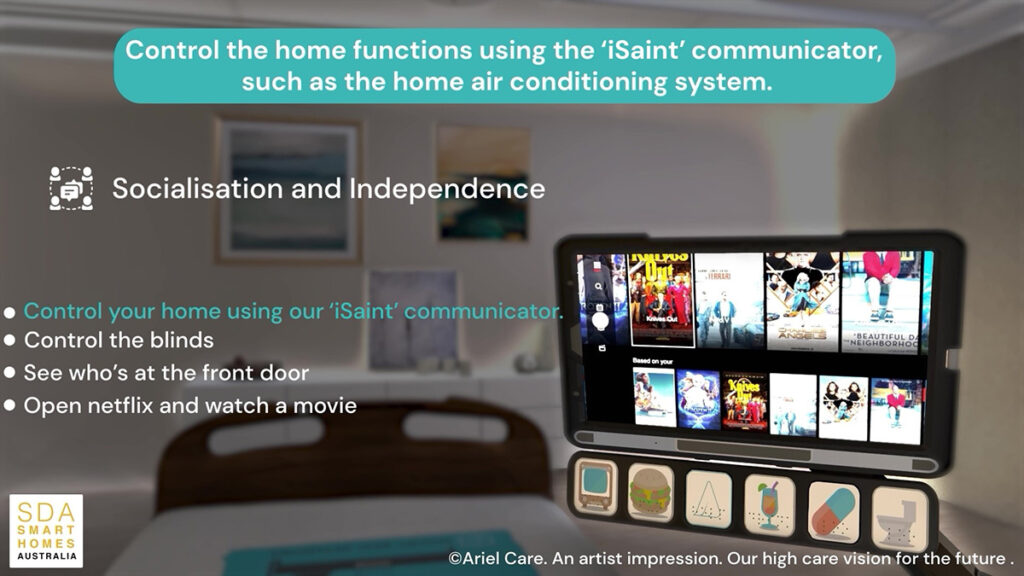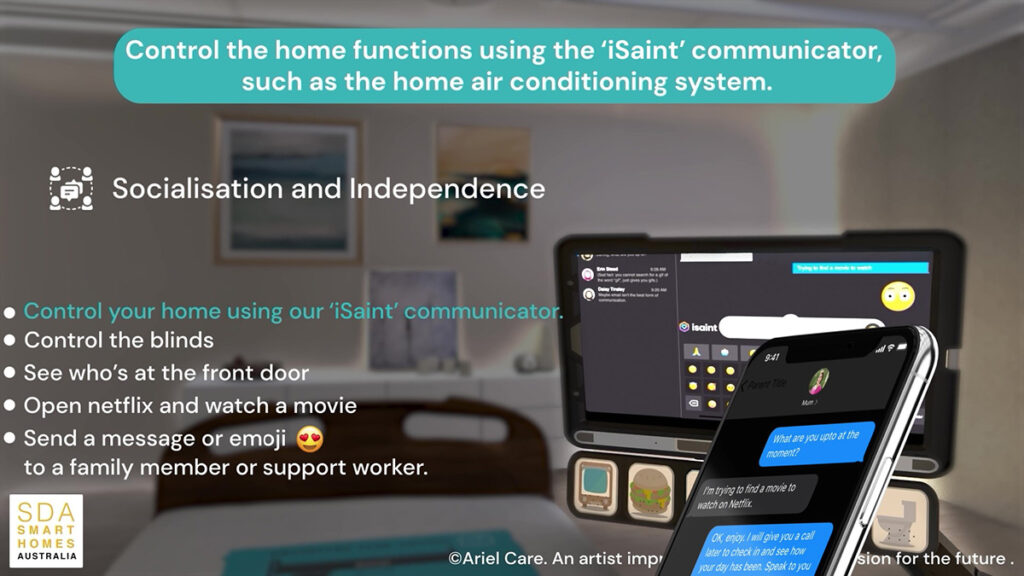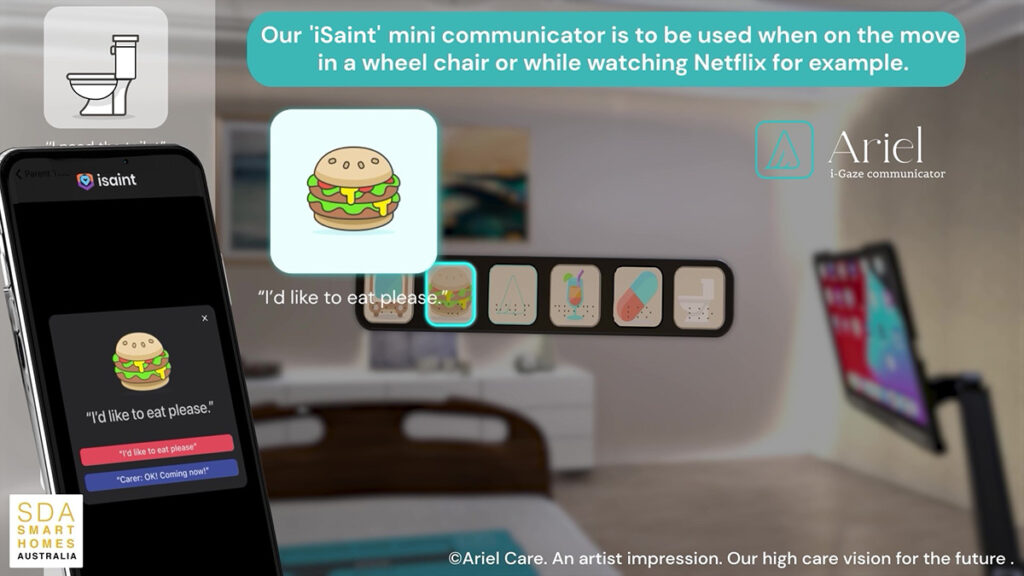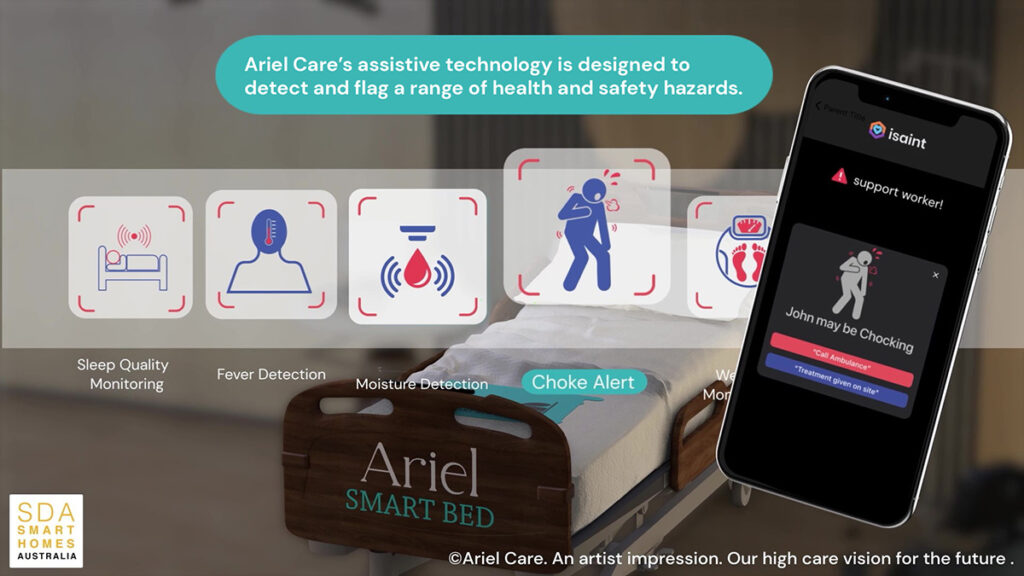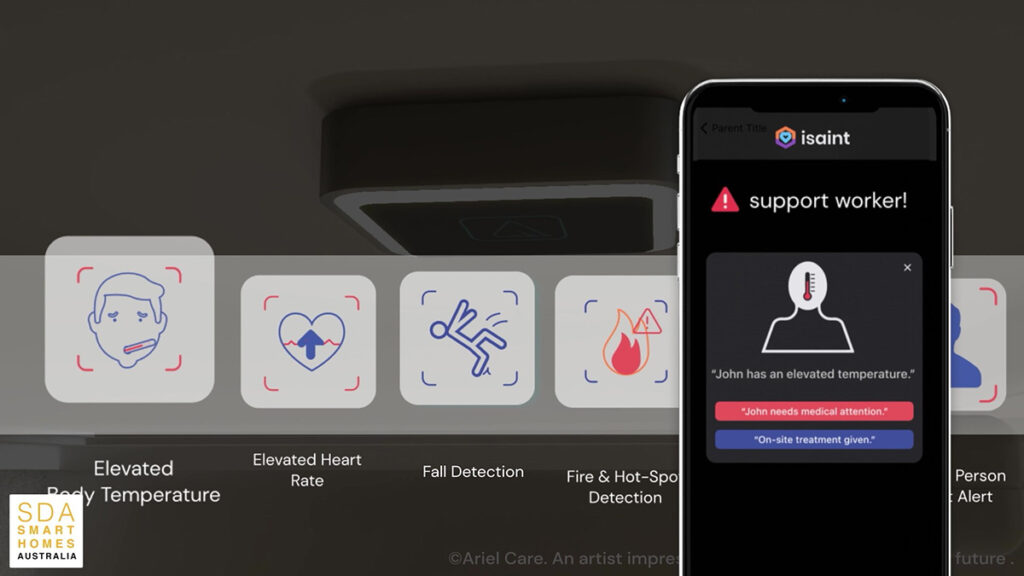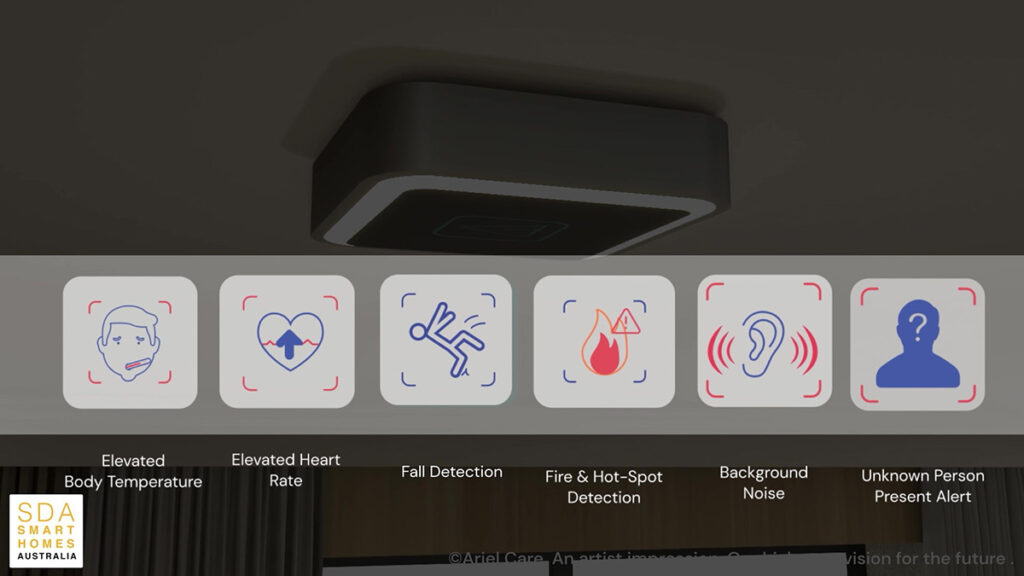Ariel Care is an embedded bricks and mortar, high care technology solution that helps support workers deliver better outcomes for participants. SDA Smart Homes’ benchmark standard in NDIS high care accommodation will provide the only living environment that excels beyond just safety, security & the comfort of the participant. It will enable them to experience & enjoy the next level of 21st century social and network interaction within their community with the ability to project their skills and passion into the outside world. No other known offering can provide the care and opportunity of an Ariel Care SDA Smart Homes solution.
Our assistive technology and smart home solutions are, and always will be, designed to make support workers’ and participants’ lives easier. Some of these planned features will include:
- Eye gaze house and carer communicator
- Fever detection alert
- Bed Wetness alert
- Power out alert
- Detection of elevated heat source (a future fire detection) alert
- Unknown persons detection alert
Why do we do it?
We believe developing breakthrough AI assistive technology in disability housing can be the solution to improving quality of life for people with disabilities.
- People with a disability are five times more likely to die than the general Australian population.
- People using specialist disability services in Australia had a mortality rate 4.7 times as high as the general population.
- People with a disability are 100 times more likely to die from choking than the general Australian population.
- 42 per cent of people with severe core activity limitation, and 33% of people with other forms of disability, self-reported anxiety, compared with 12% of people without a disability
- WHO estimates 684,000 individuals die each year from falls globally
- Falls account for approximately 10% of emergency department visits and 6% of hospitalisations
- Falls are the most common cause of traumatic brain injury.
- In 2018 in Australia, older people accounted for 16% of the population but 42% of the hospitalisations and 49% of the days spent in hospital.
- Indigenous Australians of all ages 24% were living with a disability and 8.8% had severe or profound disability (ABS 2021)
- A 2019 review of causes to deaths of people in Queensland found half were potentially treatable and avoidable.
- According to WHO there are approximately 1b disabled people worldwide.
- Carers of Disabled Australians have the lowest morale of any working group in Australia. A lower morale than the long term unemployed.

